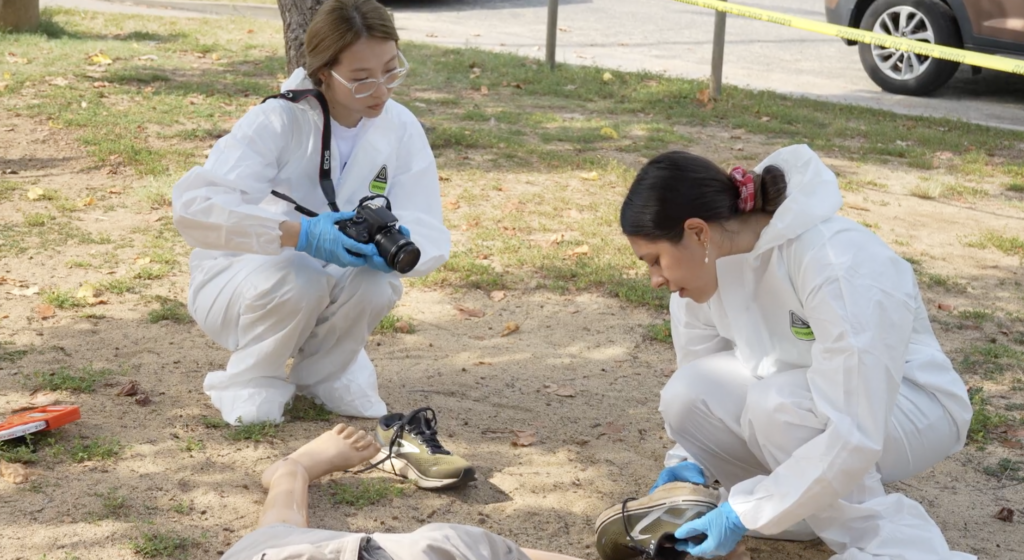The “crime scene” in Waikiki drew more than a few curious glances from beachgoers and passersby.
But it wasn’t police investigating the site. Instead, Chaminade University Forensic Sciences students—in official CSI gear—were the ones collecting evidence and documenting the scene.
The mock crime scene was set up in early April as a hands-on learning opportunity, allowing students to practice critical forensic skills.
“They feel the reality of being in an actual crime scene,” said Carlos Gutierrez, D.F.S., assistant professor of Forensic Science. “They’re applying all the skills they learned during the semester in a more specific and realistic scenario.”

Chaminade’s Forensic Sciences program is known for its practical approach, blending rigorous academics with real-world applications. The setup in Waikiki demonstrated Chaminade’s commitment to hands-on learning, giving students a chance to navigate complex investigative procedures under faculty supervision, Gutierrez said.
Never miss a post! Follow Chaminade University on Facebook and Instagram.
The major in Forensic Sciences includes instruction on the techniques used for recognizing, documenting and analyzing physical evidence, reviews of the legal system and ethical guidelines that govern forensic sciences, and hands-on applications of the scientific method in a lab.
All Forensics Sciences students are required to complete a rigorous, 135-hour internship. Students have completed internships with a variety of entities, including the Honolulu Department of the Medical Examiner, police departments in Hawaii and Guam, and the Joint POW/MIA Accounting Command’s Central Identification Laboratory.
To learn more about Chaminade’s Forensic Sciences program, click here.



